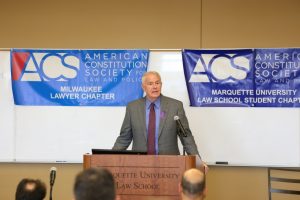U.S. Prison Population Continues Slow Decline; Wisconsin’s Inches Up
Ringing in the new year, the U.S. Bureau of Justice Statistics recently released its data on prisoners in the United States in 2015. After rising consistently for about four decades, the U.S. prison population (state and federal combined) peaked at a little over 1.6 million in 2009. Since then, the population has declined steadily, but very slowly. For 2015, the total was a little over 1.5 million, or about 35,000 less than 2014. The continued reductions are encouraging, but must be kept in perspective: the population remains many times above its historic norms. The current rate of 458 prisoners per 100,000 U.S. residents is over four times greater than the long-term rate of about 100 per 100,000 from before the imprisonment boom. We are still very much in the era of mass incarceration.
The Wisconsin numbers continue to be lower than the national norms, but are moving in the opposite direction. At yearend 2015, Wisconsin’s prison population numbered 22,975, up 1.7 percent from 2014. This amounts to 377 prisoners per 100,000. By comparison, Minnesota’s rate was just 196 per 100,000.
Here are a few additional observations:

